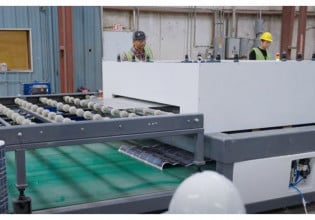16-bit General-Purpose MCUs with Dev Boards for Consumer and Industrial Designs
ROHM Group company Lapis Semiconductor announced the availability of the ML62Q1300/1500/1700 Group of general-purpose microcontrollers featuring an original 16-bit CPU core ideal for consumer and home appliances, alarms, security devices, and small industrial equipment.
Microcontrollers used in home appliances and small industrial equipment in the rapidly growing Asian market require a wide variety of package types and program ROM capacities to quickly meet the constantly evolving needs of applications that progressively add new features and functions while delivering improved performance.
And since many of these devices are used on a daily basis, safety is becoming an increasingly important factor, requiring that MCUs which comprise the core of home appliances include safety functions that can control the system under all conditions.
In response, Lapis Semiconductor‘s noise-tolerant ML62Q1300/1500/1700 Group provides safety features that correspond to 13 industry-leading items (IEC60730 regulations) related to home appliances, including a self-diagnostic function for detecting internal faults.
This makes it possible to protect systems from unexpected situations that occur in MCUs used in the consumer electronics field which is becoming more sophisticated as well as the compact industrial equipment sector that requires stable operation even under harsh conditions such as extreme noise and high temperatures.
A broad lineup comprised of a class-leading 120 models in a number of different package types and program ROM capacities is offered, ensuring support for a wide range of applications.
In addition, starter kits are available that make it easy to evaluate LCD operation and capacitive switch on an application level, as well as a reference board that allows users to develop customized application programs.
The starter kits and reference board are compatible with Lapis Semiconductor‘s new LEXIDE-U16 development environment operating under the open source Eclipse platform which features an easy-to-use interface and enhanced functionality, ensuring not only high development efficiency but also seamless compatibility with Eclipse environments from other companies.
The MCUs along with the ML62Q1000 Capacitive Switch Starter Kit and the ML62Q1367 reference board will be sold from March through online distributors, and others will be available in order.
Key Features
- Supports an industry-leading 13 safety items (IEC60730 regulations) to protect home appliances
Since the microcontroller controls peripheral components, it is possible to detect failures in advance and avoid malfunctions by performing periodic diagnosis. However, the MCU must also be able to detect internal faults and terminate operation before returning to the initial state.
- Covers an unprecedented 13 items related to hardware safety
- Sample source code software for self-diagnosis provided utilizing the IEC60730-1 Class B Software Library
- Broad 120-model lineup offers unsurpassed compatibility
Lapis Semiconductor's wide range of MCUs available in different package types and program ROM capacities supports the home appliance and compact industrial equipment markets which are becoming increasingly sophisticated and multi-functional, allowing users to select the ideal solution to fit system requirements (i.e. mounting area, costs).
Lapis offers starter kits and a reference board for creating application programs that reduce development load.
- Original LEXIDE-U16 IDE (Integrated Development Environment) utilizes the popular Eclipse platform
Lapis Semiconductor's original LEXIDE-U16 development environment is based on the open source Eclipse IDE with CDT (C/C++ Development Tooling) plug-in. Compared to our existing IDEU8, the editor function has been enhanced, file operability improved, and a stack size calculation tool has been added. It is now possible to call our proprietary DTU8 debugger, LCD image tool, MWU16 Flash multi-writer, SCU16 stack size calculation tool, and other programs, allowing the LEXIDE-U16 to achieve not only high development efficiency but also ensure compatibility with Eclipse environments from other companies.









